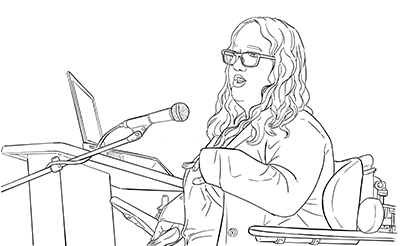AccessADVANCE
Access issues for Faculty with Disabilities
What is "intersectionality" in the context of working with students who have disabilities?
"Intersectionality" refers to the fact that individuals have multiple identities, with respect to gender, race, ethnicity, age, marital status, socioeconomic status, disability, etc. Those working with individuals with disabilities should recognize that the interaction of these identities influences a person's experiences, perspectives, and other aspects of their life.
AccessADVANCE: Making STEM Departments More Inclusive of Faculty with Disabilities
Systematically reviewing and improving campus communications, worksites, meetings, technology, events, and services to make them more accessible and inclusive to faculty members with disabilities.
Women with Disabilities in Academic Careers
This video profiles women faculty members with disabilities sharing their experiences and perspectives.
Equal Access: Universal Design of Your ADVANCE Project

Leading Practices for Improving Accessibility and Inclusion in Field, Laboratory, and Computational Science – A Conversation Series
How can I use my learning management system to make my course more accessible to everyone?
Steps to making an online course accessible include
- Structuring content using headings,
- Creating alt text for images,
- Create meaningful hyperlinks,
- Created structured lists,
- Include table headers,
- Captioning and audio-describing videos,
- Uploading accessibly-formatted content, and
- Using accessibility checkers to find barriers to accessibility.
Options in Canvas, Blackboard, Moodle, and other learning management systems (LMSs) for making courses are described below.
The Mind Hears Blog: A Promising Practice in Building Community and Awareness
Deaf and hard-of-hearing academics face a lot of challenges in their work as well as challenges in advancement through academia.
What institutional strategies can reduce barriers to academic STEM careers faced by women with disabilities?
Women with disabilities in academic science, technology, engineering, and mathematics (STEM) careers face a variety of challenges.